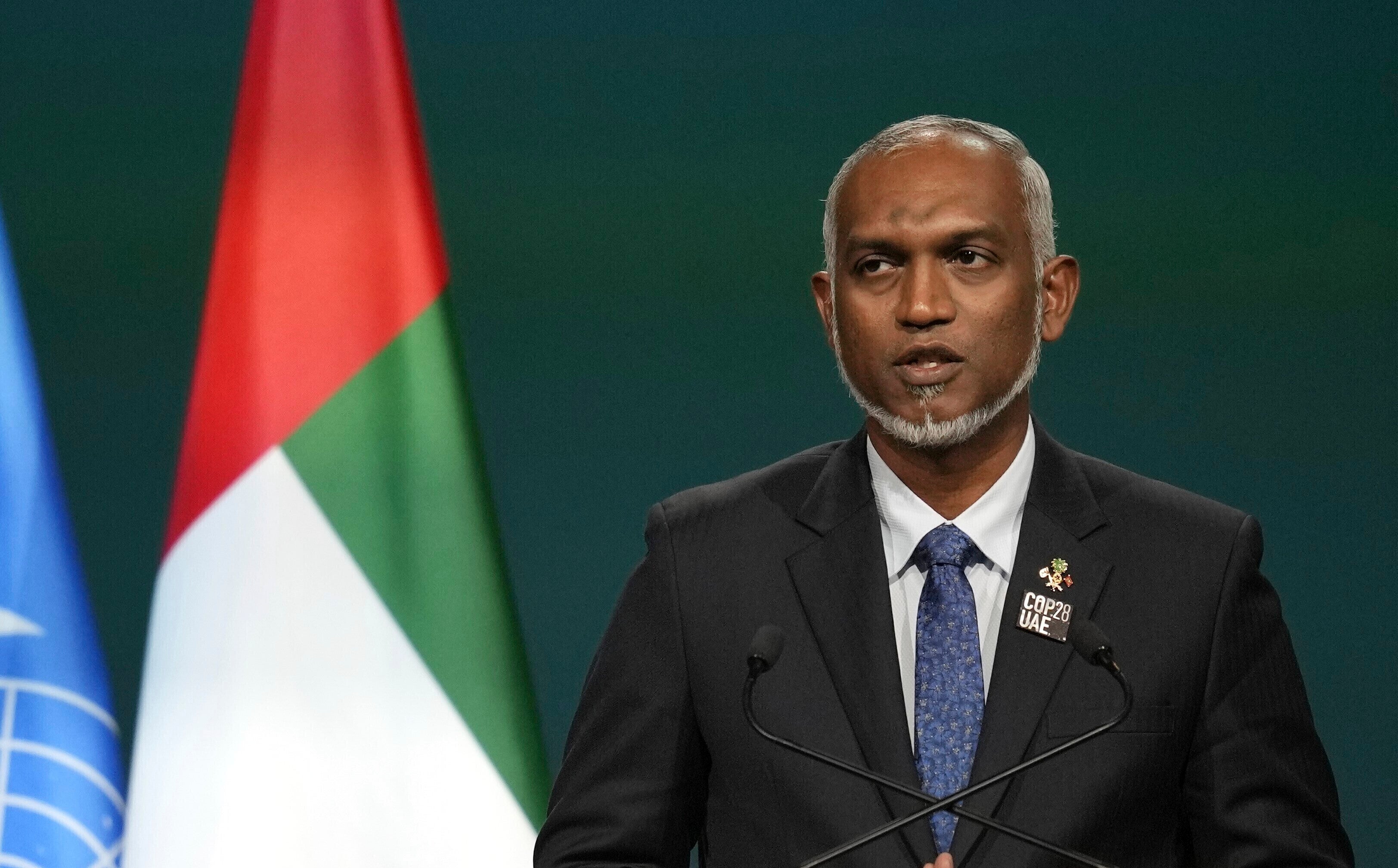Maldives government asks India why its coast guard boarded 3 fishing boats
The Maldives government says it has asked for clarification of why the Indian coast guard boarded three Maldivian fishing vessels within its economic zone earlier this week without consultation

Your support helps us to tell the story
From reproductive rights to climate change to Big Tech, The Independent is on the ground when the story is developing. Whether it's investigating the financials of Elon Musk's pro-Trump PAC or producing our latest documentary, 'The A Word', which shines a light on the American women fighting for reproductive rights, we know how important it is to parse out the facts from the messaging.
At such a critical moment in US history, we need reporters on the ground. Your donation allows us to keep sending journalists to speak to both sides of the story.
The Independent is trusted by Americans across the entire political spectrum. And unlike many other quality news outlets, we choose not to lock Americans out of our reporting and analysis with paywalls. We believe quality journalism should be available to everyone, paid for by those who can afford it.
Your support makes all the difference.The Maldives government says it has asked for clarification of why Indian coast guard personnel boarded three Maldivian fishing vessels operating within its economic zone earlier this week without consultation.
The Maldives defense ministry said in a statement Friday night that its military was informed on Wednesday that personnel from a foreign military had boarded a Maldives fishing vessel, and on reaching the location it was found that they were from the Indian coast guard.
The Maldives military also found that Indian coast guard personnel had boarded two more boats, the statement said without explaining what they did on the boats.
“On Feb. 1, 2024 , the foreign ministry of the Maldives has asked (India) officially for the details of the operation that was carried out while Maldivians were fishing in the Maldivian exclusive economic zone, without any coordination with the relevant authorities and against all international laws,” the statement said in the native Dhivehi language.
This is the latest in a series of conflicts that has led to a setback in relations between the two nations since a pro-China leader was elected in the Maldives last November.
Both India and China have been vying for influence in the Maldives, which is located strategically along a key sea route, in their competition to control the Indian Ocean.
Maldives President Mohamed Muizzu was part of an “India Out” campaign as an opposition politician, demanding the removal of Indian military personnel stationed in some islands. He campaigned for the presidency on the same promise and made an official request to India soon after his election.
On Friday contradictory statements emerged from the two countries in relation to the withdrawal of Indian troops.
The Maldives foreign ministry said in a statement that officials from both countries met in New Delhi and agreed that India would begin withdrawing troops from the Maldives on March 10 and complete the process by withdrawing from all three aviation platforms by May 10.
But an Indian foreign ministry statement did not mention a withdrawal, saying instead that both sides agreed on a set of solutions “to enable continued operation of Indian aviation platforms that provide humanitarian and medevac services to the people of Maldives.”
It is believed there are at least 75 Indian military personnel in the Maldives and their known activities include transporting patients from remote islands and rescuing people at sea.
The dispute between the two countries worsened last month when Indian Prime Minister Narendra Modi posted pictures on social media of himself strolling and snorkelling on the beaches of Lakshadweep, an Indian archipelago that looks nearly identical to the Maldives islands.
The Indian government believes that its chain of islands has untapped potential for tourism, and some in the Maldives thought that Modi's posts were a way of luring tourists away from the famous white sand beaches and luxury island resorts of the Maldives.
Three Maldivian deputy ministers posted derogatory posts against Modi which inflamed many Indians, leading to a social media campaign to boycott Maldives. The largest number of tourists visiting the Maldives come from India, making up 11% of the total last year.
The posts were taken down, the deputy ministers were suspended and the Maldives government stressed that the views expressed did not reflect government policy.
Muizzu's China visit also coincided with the dispute, and he came back announcing plans to rid his nation of dependence on India for health and education and import of staples. He also cautioned that the Maldives' smaller size did not give any country the license to bully it, an apparent indirect reference to India.